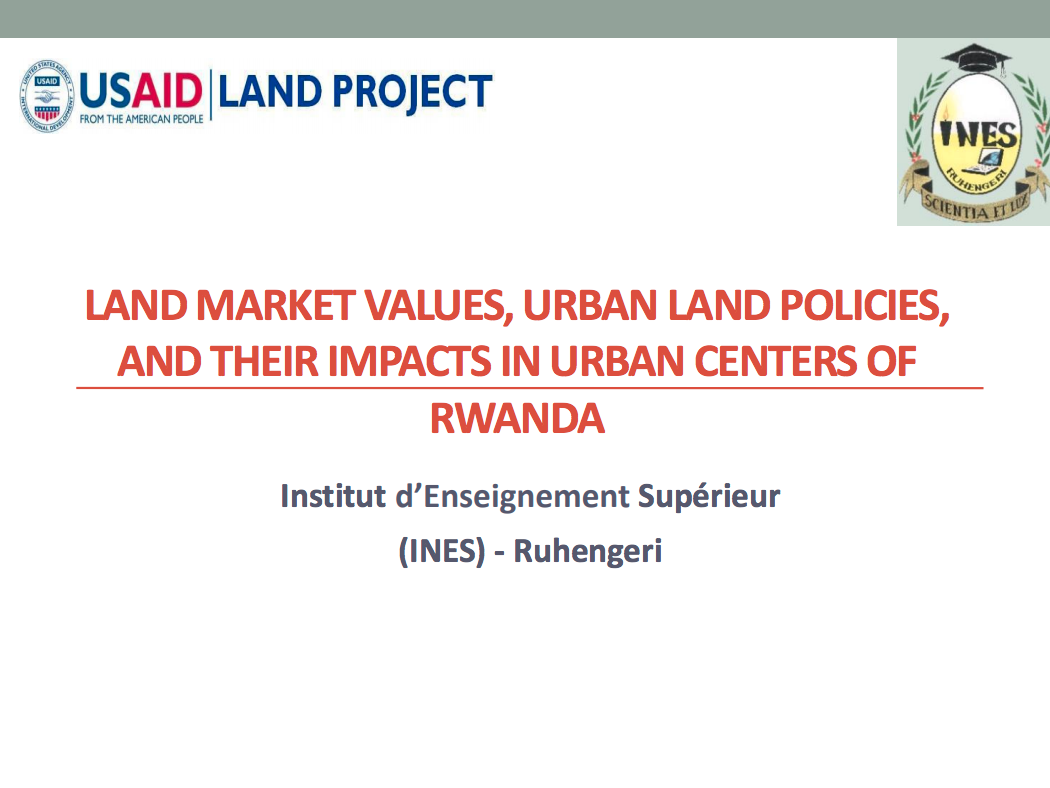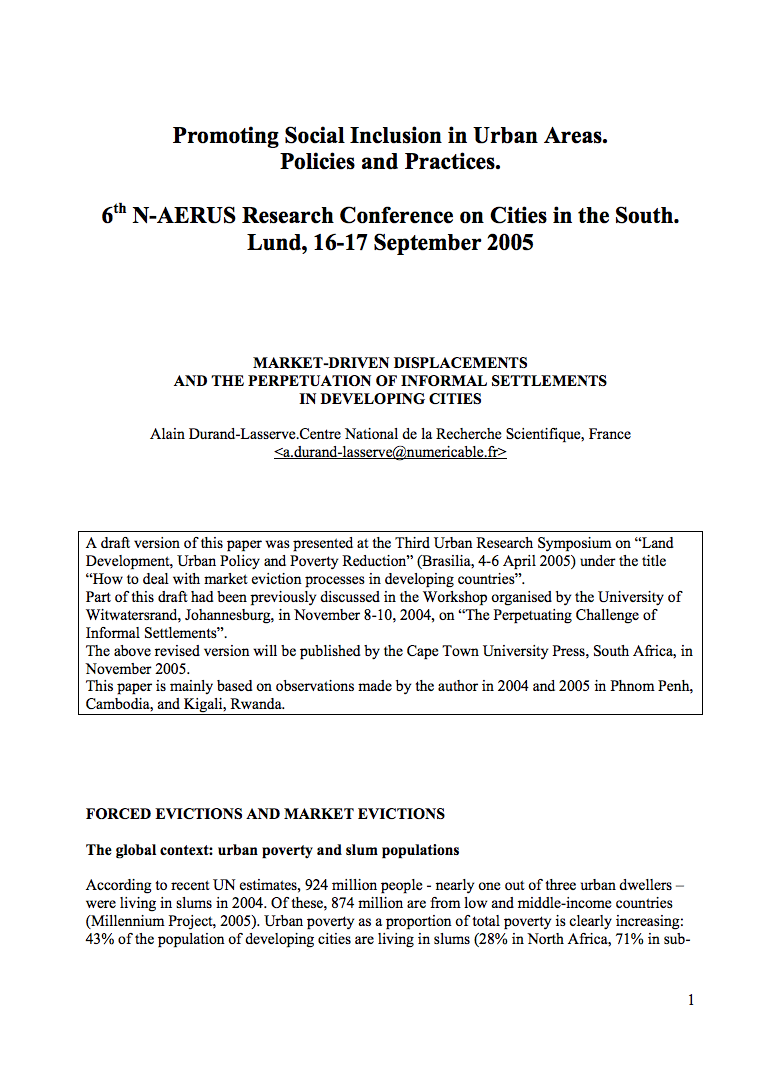Policy Brief: Land Market Values, Urban Land Policies, and their Impacts in Urban Centers of Rwanda
This policy brief summarizes the main findings and recommendations of qualitative and quantative research on urban land markets in Rwanda. The main objective of this research is to investigate land market values, urban land policies and their impacts on urban centers. Three (3) specific objectives can be distinguished namely: a) Evaluating the determinants of urban land markets; b) Analysis of trends in urban land markets and values; and c) Assessing impacts of urban land prices and policies.




